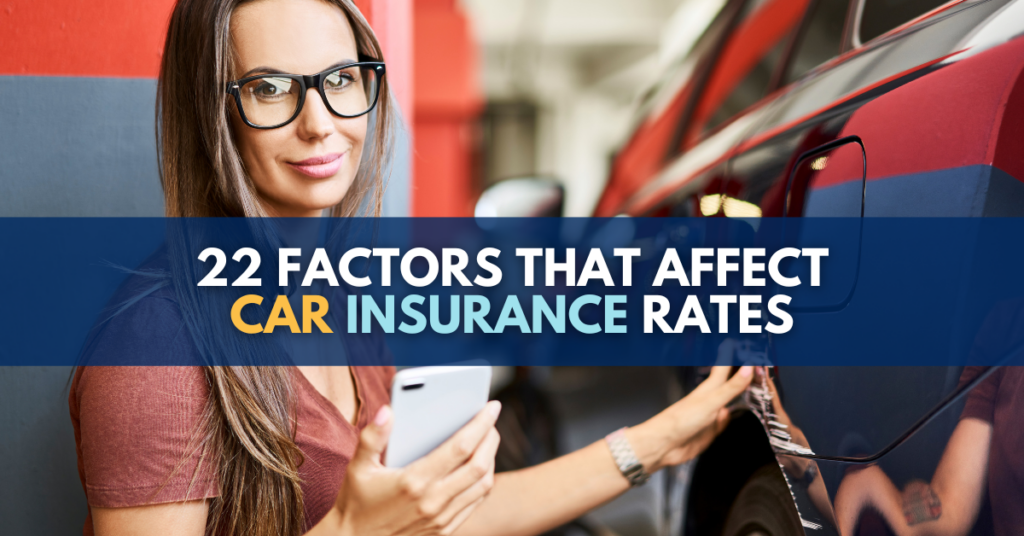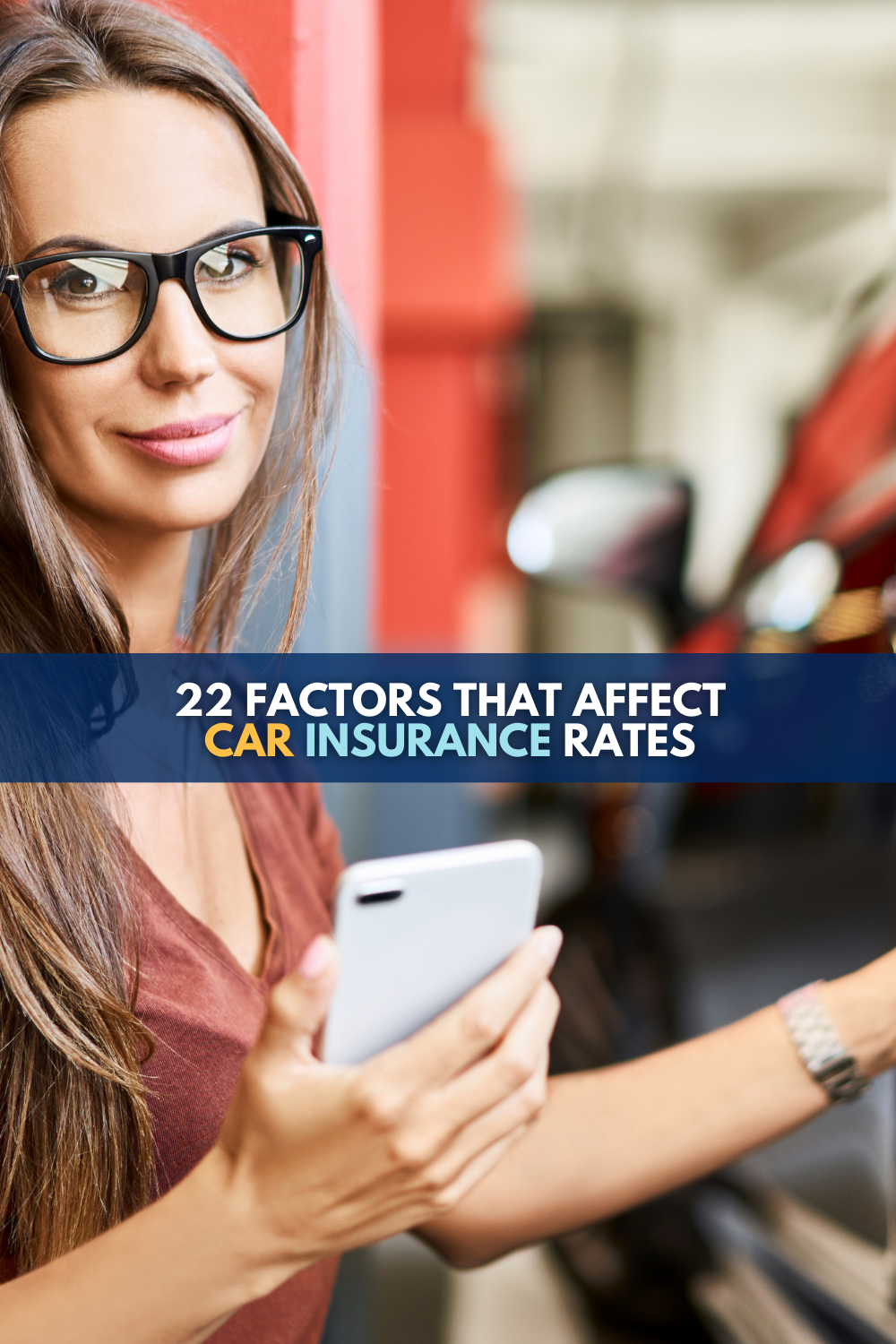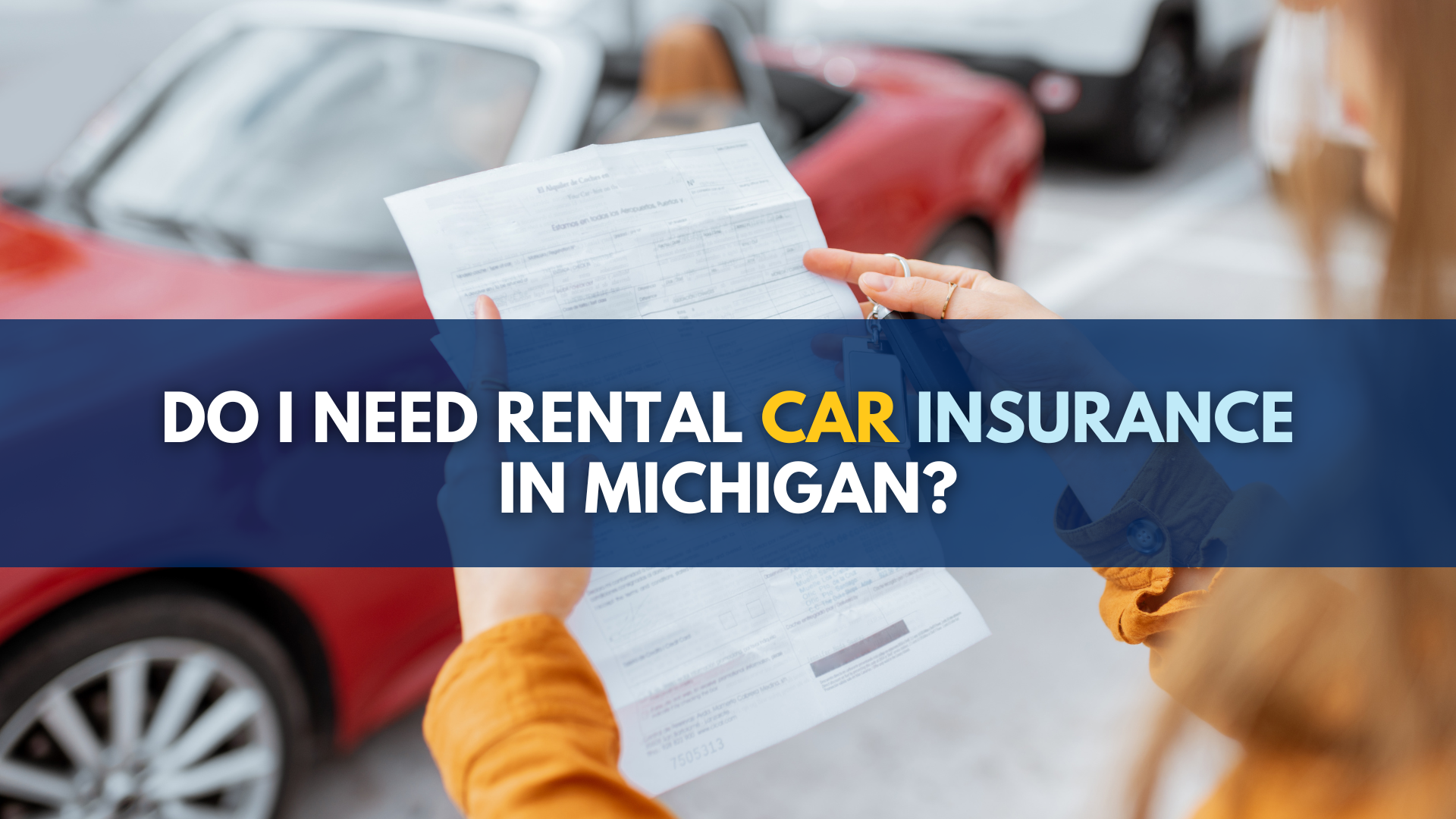
What are the rating factors that affect car insurance rates in Michigan? Each auto insurer has its own list of factors that it tends to focus on when determining insurance rates, but when auto insurance companies are looked at across the board, these are the top 22 rating factors that affect car insurance rates that insurers rely on:
- Age
- Gender
- Location where a person lives
- Marital status
- Credit score
- Profession
- Driving history
- Years of driving experience
- Annual mileage
- Use of vehicle
- The actual vehicle
- Safety rating of your vehicle
- Size of your vehicle
- Age of your vehicle
- Likelihood of theft of your vehicle
- Vehicle ownership status
- Previous insurance coverage
- Claims record
- Insurance coverage levels
- Insurance deductible levels
- Discount options
- Who is your insurance company?
What are car insurance rating factors? Rating factors are the unique, specific characteristics of the person and the vehicle for which an insurance company is being asked to provide coverage. Insurers believe these factors are predictors of both the risk involved in insuring the person and vehicle in question and the likelihood that the person may someday file a claim (and, thus, require the insurer to pay out benefits).
1. Age
Insurers consider age as a factor that affects car insurance because the statistics show that drivers of different ages pose different risks. For example, teen drivers are more likely to drive recklessly and be involved in crashes whereas drivers in their 50’s are not.
2. Gender
Although many auto insurance companies take gender into account when setting rates – based on statistics suggesting different crash risks for men and women – there are states that prohibit gender as a factor that affects car insurance rates. Those states include: Hawaii; Massachusetts; Michigan (see MCL 500.2111(4)(a)); Montana; North Carolina; and Pennsylvania.
3. Location or where a person lives
The location where a person lives is a very popular factor that affects car insurance rates in Michigan among insurers. Of course, the state will matter because it will affect whether a person is purchasing No-Fault or tort-based insurance. Additionally, auto insurance companies factor in the ZIP code where a person resides. Insurers claim that ZIP codes tell them the following information, which affects risk: frequency of car accidents; car theft rate; vandalism rate; claims rate; fraudulent claims rate; weather; and the prevalence of uninsured drivers. In Michigan, auto insurers are prohibited from basing automobile insurance rates on the “postal zone in which the insured resides.” (MCL 500.2111(4)(f))
4. Marital status
Marital status is a factor that affects car insurance rates in Michigan for some insurers based on statistics that purport to show that married drivers present less of a risk for insurers than do single, divorced or widowed drivers. Not all states – such as Michigan (see MCL 500.2111(4)(b)) and Massachusetts – do not allow marital status to be used a rate-setting factor.
5. Credit score
Use of a person’s credit score and/or credit history in the rate-setting process is called “credit scoring.” This is a factor that affects car insurance rates in Michigan because insurers believe that people with low or bad credit scores, as opposed to drivers with good or excellent credit, are more likely to file claims and those claims will be more expensive. Auto insurance companies in Michigan are barred from using a driver’s “credit score” to set premium rates. (MCL 500.2111(4)(g))
6. Profession
A person’s profession or occupation can be a factor that affects car insurance rates in Michigan if an insurer believes it will cause the person to be on the road more (or less) and if, based on the nature of the person’s job, an insurer perceives him or her to be more careful and cautious than people with different jobs. In Michigan, a driver’s “occupation” cannot be used as a factor for setting his or her auto insurance rates. (MCL 500.2111(4)(e))
7. Driving history affect car insurance rates in Michigan
Driving history is a factor that affects car insurance rates in Michigan which comes as no surprise. Insurers look to a person’s driving history when determining insurance rates. Specifically, insurance companies want to know about accidents (whether they are at-fault or non-at-fault), tickets and moving violations.
8. Years of driving experience
The number of years that a person has spent behind the wheel is a very important factor that affects car insurance rates in Michigan. Simply put, inexperience means greater risk. More experience means just the opposite.
9. Annual mileage
The more time that a person spends on the road every year, the greater the risk is that he or she may be involved in an accident. More driving time, more exposure.
10. Use of vehicle
How a person uses his or her vehicle is a factor that affects car insurance rates in Michigan. Insurers want to know if the car is being used to just do errands around town or whether it’s being used to commute long distances to work or school. Additionally, especially in this era of ride-sharing, insurance companies are particularly attuned to whether a vehicle is being used for personal or business purposes.
11. The actual vehicle
Car insurance companies want to know what the actual vehicle is that they’re being asked to insure. This helps insurers gauge how the vehicle will be driven. Insurance companies rely on statistics to predict how likely it is that the vehicle will be involved in a crash (and will result in a claim being filed). Additionally, knowing what the vehicle is allows to insurers to estimate the potential cost of replacement parts.
12. Safety rating of your vehicle
It’s not uncommon for an auto insurance company to consider the safety rating of your vehicle as a factor that affects car insurance rates in Michigan as it may be a predictor of how likely – or unlikely – it is that the insured or a passenger could be injured in a crash, thereby requiring the insurer to payout on a claim for benefits.
The flip side of this is that insurers may view safety features such as collision-warning and lane-departure systems as increasing the insurers’ risks in the event these features are expensive to repair or replace.
13. Size of your vehicle
This factor that affects car insurance rates in Michigan can cut two ways with car insurance companies. On the one hand, some insurers may view bigger vehicles as being safer than small vehicles in the event of a crash thus reducing insurance rates. On the other hand, other insurers may view larger vehicles as being more dangerous because they have bigger engines (which may induce some drivers to drive faster) and because the vehicle’s large size may lull drivers into a false sense of security, thereby causing them to drive less cautiously causing insurance rates to increase.
14. Age of your vehicle
This a factor that affects car insurance rates in Michigan because a brand new vehicle will be more expensive to repair and/or replace than a vehicle that is five or ten years old; insurance rates will be higher for the newer vehicle than for the older one.
15. Likelihood of theft of your vehicle
If your vehicle is one that is highly coveted by car thieves, then you are likely go to pay more car insurance. This is a factor that affects car insurance rates in Michigan because if the risk of your vehicle being stolen is higher, the insurers are going to want more in the way of premiums for taking on the risk. However, an insurer’s inclination to charge more may possibly be offset if you have a car alarm and/or other anti-theft features.
16. Vehicle ownership status
It makes a difference to insurers whether the vehicle you seek to insure is owned by you or whether you’re leasing it and/or whether it’s otherwise financed.
This is a factor that affects car insurance rates in Michigan because in many cases the terms of a lease or a financing agreement require a driver to purchase additional coverages that an owner might otherwise opt out of. Specifically, drivers who are leasing or financing a vehicle may be obligated to purchase comprehensive and collision coverage as well as “gap insurance.” Gap insurance covers the difference between the market value of a vehicle and the amount that’s still owed on the lease in the event that a crash “totals” a leased or financed vehicle.
17. Previous insurance coverage
If a driver has never had insurance (unless he or she is a young driver who is driving for the first time) or a driver has had gaps or lapses in coverage, then insurance companies tend to charge higher premiums to these drivers. Insurance companies prefer to see that a driver has had continuous coverage. Some insurers presume that if you’ve been licensed, but you did not have insurance, then you were likely breaking the law by driving without insurance.
18. Claims record
Yes, your claims record is a big factor that affects car insurance rates in Michigan. If you have a history of filing claims against auto insurance companies, then the car insurance companies from whom you are seeking coverage are going to charge you higher premiums. Why? Because insurance companies will expect that you will file claims against them – if given the chance – and thereby require them to payout on those claims.
When looking at a person’s claim history or claims record, insurers not only look to claims filed by the person, but also to claims filed against the person, whether the claims in question were at-fault or non-at-fault, the number of claims and whether payouts were made on any of the claims (and the amount of any such payouts).
19. Insurance coverage levels
This should not come as a surprise to drivers that the more they seek in terms of auto insurance coverage, the more they will have to pay in premiums. If insurers face having to payout more in the event that a crash occurs and a claim is filed, then they are going to want to collect more up front.
20. Insurance deductible levels
Insurance deductible levels is a factor that affects car insurance rates in Michigan because higher deductibles means lower premiums and lower deductibles mean higher premiums. When a driver opts for a higher deductible, that means that the insurance company will not have to start paying on a claim until the deductible is paid. This saves the insurer money.
On the other hand, if a driver has a low or zero deductible, then the driver needs to pay little or nothing upfront and out-of-pocket to trigger the insurer’s obligation to start paying on a claim. This costs the insurer money.
21. Discount options
Many auto insurers offer discounts on auto insurance premiums for reasons that have absolutely nothing to do with your driving and whether you’re a safe driver. For instance, depending on the auto insurer, some will offer discounts based on:
- Whether you purchase other types of insurance, such as homeowner’s coverage, from the insurer
- Whether you are insuring multiple vehicles with the insurer
- Whether you belong to certain organizations or associations or clubs or groups
- Whether you are a student and you’re getting good grades
- Whether you are driving an eco-friendly vehicle
22. Who is your insurance company?
Although this factor is last on this list, in reality, it is likely the most important factor that affects car insurance rates in Michigan.
Finding The Right Auto Insurance Company
Now that you know the top 22 factors that affect car insurance rates in Michigan, it is essential that you find the best auto insurance company to protect you, your family, your vehicle and your property.
To help you make that determination, please order your FREE copy of our book, “Attorneys’ Guide to the Best Auto Insurance Companies And The Ones Our Attorneys Recommend That You Should Avoid.”



